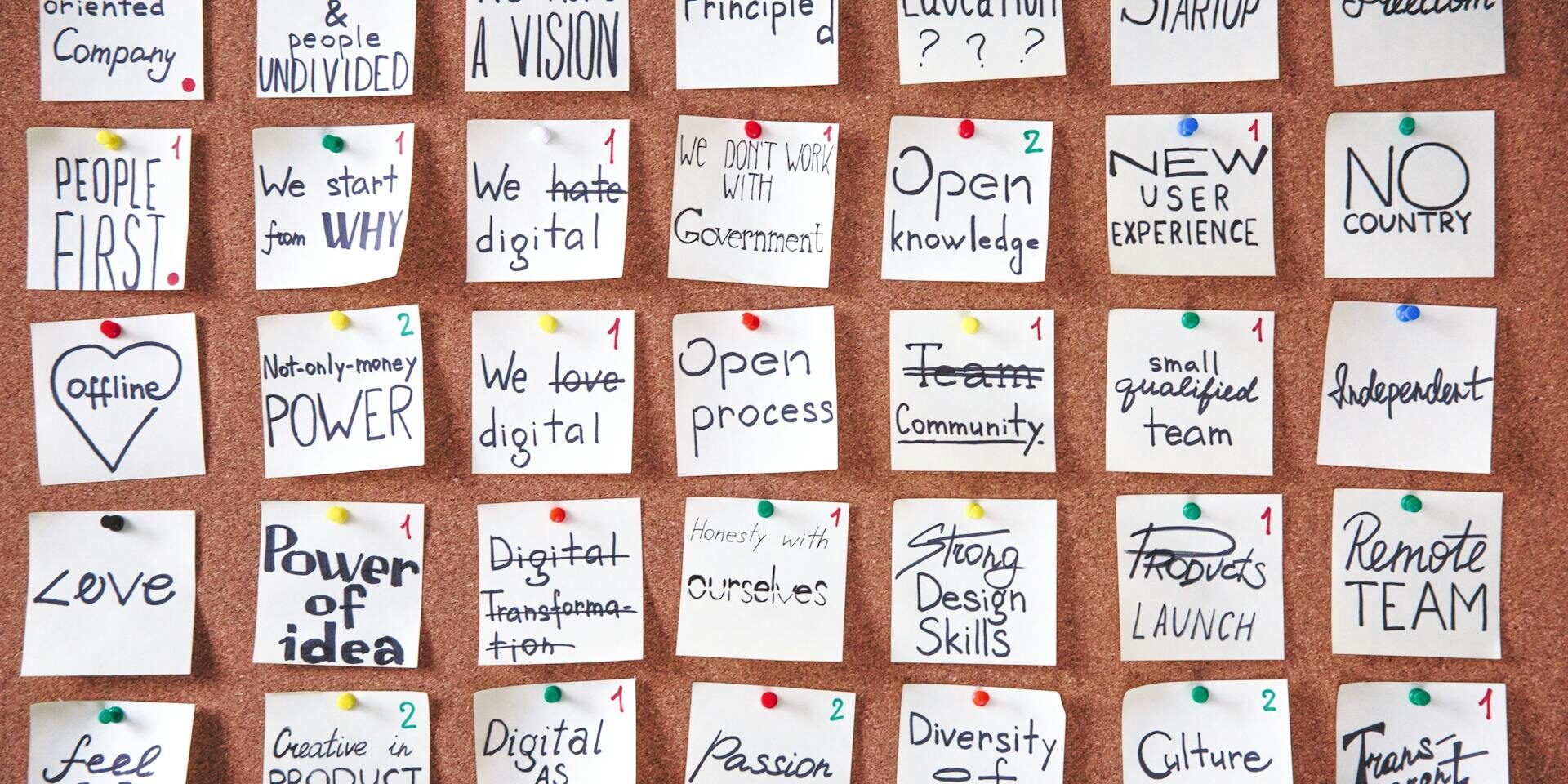Why Ideas are Important?
Ideas are the seeds from which remarkable things grow. They are the sparks that ignite revolutions, propel businesses forward, and reshape our understanding of the world.
In this essay, we’ll explore the profound significance of ideas and why fostering a culture that nurtures and celebrates them is crucial for progress.
What Are Ideas?
An idea is a thought, a concept, or a notion that sparks in our minds. It’s a mental impression that carries the potential to be transformed into something tangible, whether it’s a groundbreaking invention, a work of art, or a new way of looking at the world.
Ideas can be simple or complex, revolutionary or incremental. They can emerge from personal experiences, observations, or moments of inspiration.
Some ideas are born out of necessity, while others stem from pure curiosity or a desire to challenge the status quo.
The Power of Ideas
Ideas have the power to change the world.
Throughout history, transformative ideas have shaped civilizations, sparked social movements, and driven technological advancements.
Consider the idea of democracy, which challenged the notion of absolute monarchies and paved the way for more equitable societies. Or the idea of the printing press, which democratized knowledge and facilitated the spread of information.
“Ideas are the root of creation,” noted the French writer Ernest Dimnet.
Ideas are the lifeblood of innovation. They shape the way we think and see our place in the universe.
In the business world, too, ideas matter — from Steve Jobs to Tim Berners-Lee; and Google to Uber — new thinkers and new ideas challenge and redefine how we work and live.
An idea can change an entire industry, and ideas, from kaizen to the balanced scorecard, continually transform the way we work and lead our businesses.
Ideas as Agents of Change
Ideas have the power to challenge long-held beliefs and conventions, acting as agents of change.
Throughout history, groundbreaking ideas have faced resistance and skepticism, only to eventually reshape our understanding of the world.
Take, for example, the idea of a heliocentric model of the solar system, proposed by Copernicus in the 16th century. This idea contradicted the widely accepted geocentric model and was initially met with fierce opposition. However, it ultimately transformed our understanding of the universe and paved the way for further scientific discoveries.
Ideas that challenge the status quo often face resistance, but they can also be the catalyst for progress.
Ideas: Bridging Imagination and Reality
Ideas act as a bridge between imagination and reality. They take abstract thoughts and transform them into tangible outcomes that can improve our lives, solve problems, or simply bring joy and wonder.
Consider the idea behind the smartphone, which combined existing technologies like touchscreens, cameras, and internet connectivity into a single, handheld device. This idea revolutionized how we communicate, access information, and navigate the world.
Ideas Transcend Boundaries
Innovative ideas like Prahalad’s Fortune at the Bottom of the Pyramid, which challenged businesses to find commercial solutions to problems facing the world’s poorest people, or the $300 house campaign to reinvent housing for the underprivileged, remind us that ideas can transcend boundaries and have a profound impact on society.
Another powerful example is Professor Muhammad Yunus’s pioneering idea of microcredit – providing small loans to the poor to help them start businesses and lift themselves out of poverty. This revolutionary concept challenged conventional banking practices and earned Yunus the Nobel Peace Prize in 2006 for his efforts to create economic and social development from below.
Executing the Wrong Idea
While ideas are undoubtedly powerful, it’s important to recognize that executing on the wrong idea can be costly. Pursuing an idea without proper validation or market fit can lead to wasted resources, time, and effort.
According to CB Insights, majority of startups fail due to a lack of market need for their product or service.
A study by Harvard Business School found that 95% of new product launches fail each year.
This underscores the importance of thoroughly vetting ideas, conducting market research, and validating assumptions before committing significant resources to their execution.
Cultivating a Culture of Ideas
To truly harness the power of ideas, we must cultivate an environment that encourages creativity, open-mindedness, and a willingness to take calculated risks.
- Embrace diversity: Diverse perspectives and backgrounds can fuel new and innovative ideas. Surround yourself with people from different walks of life, cultures, and experiences.
- Foster curiosity: Encourage a culture of questioning and exploration. Celebrate curiosity and create opportunities for people to learn, experiment, and explore new avenues.
- Promote collaboration: Ideas often thrive when different minds come together. Foster an environment where people can freely share thoughts, build upon each other’s ideas, and collaborate toward a common goal.
- Embrace failure: Failure is an inherent part of the creative process. Celebrate failures as learning opportunities and encourage a mindset that embraces calculated risks and experimentation.
- Provide resources: Allocate time, space, and resources for idea generation and exploration. Invest in tools, training, and opportunities that nurture creativity and innovation.
By cultivating a culture that values ideas, we create an environment where transformative thinking can flourish and groundbreaking concepts can take root.
TL;DR
Ideas are the driving force behind progress, innovation, and change.
They have the power to challenge conventions, solve problems, and reshape our understanding of the world.
However, executing on the wrong idea can be costly, highlighting the importance of validating ideas and conducting market research. Ideas act as a bridge between imagination and reality, transforming abstract thoughts into tangible outcomes that improve our lives.
To truly harness the power of ideas, we must cultivate a culture that embraces diversity, curiosity, collaboration, calculated risk-taking, and a willingness to learn from failures.
By fostering such an environment, we create the fertile ground for transformative thinking and groundbreaking concepts to thrive.
Q&A
Q: Why are ideas often resisted or met with skepticism?
A: Ideas that challenge the status quo or long-held beliefs can face resistance and skepticism because they disrupt the established way of thinking or doing things. People may be hesitant to embrace new ideas due to fear of change, a lack of understanding, or a reluctance to abandon familiar and comfortable paradigms.
Q: How can individuals or organizations identify and prioritize the most promising ideas?
A: To identify and prioritize promising ideas, it’s essential to establish a rigorous evaluation process that includes market research, validation of assumptions, and a thorough understanding of customer needs and market trends. Additionally, seeking input from diverse perspectives, conducting pilot tests or experiments, and monitoring key metrics can help separate promising ideas from those with limited potential.
Q: Can too much focus on ideas be detrimental to execution and productivity?
A: While ideas are essential for innovation and progress, an excessive focus on idea generation without proper execution and follow-through can indeed be detrimental. It’s crucial to strike a balance between fostering a culture of creativity and ensuring that resources are allocated appropriately to turn promising ideas into tangible outcomes. Effective project management, prioritization, and a disciplined approach to execution are vital to prevent idea overload and ensure productivity.
Q: How can management innovation drive positive change in society?
A: Management innovation, or breakthrough ideas in how we organize and lead people, can have a profound impact on addressing major societal challenges. For instance, innovative management thinking has been applied to tackle issues like healthcare accessibility, education reform, poverty alleviation, and sustainable economic models. By rethinking traditional management processes and routines, we can unlock new ways to drive positive change and create a better future for all.




